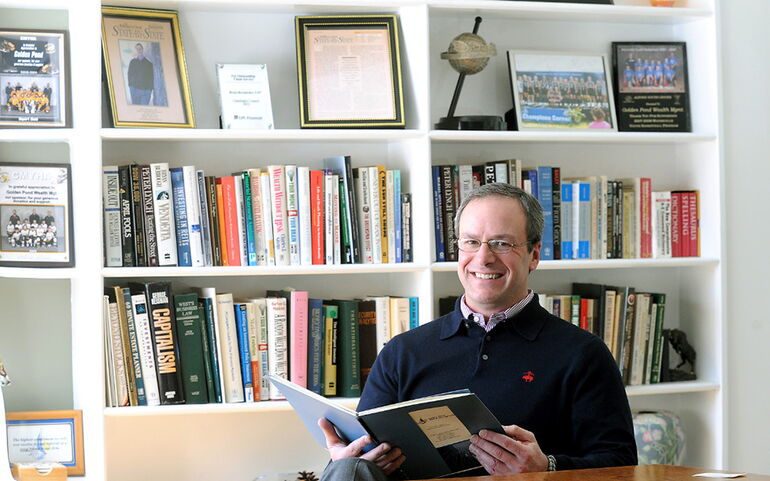Estate planning for the ‘sandwich generation’: The time to talk is while parents are still healthy
 FILE PHOTO / Amber Waterman
Brian Bernatchez, managing director and chief investment officer at Golden Pond Wealth Management.
FILE PHOTO / Amber Waterman
Brian Bernatchez, managing director and chief investment officer at Golden Pond Wealth Management.
Adults in their 40s and 50s are increasingly becoming known as the sandwich generation as they are often trapped in between aging elderly parents and raising their own children. Sometimes this population even becomes responsible for their grandchildren, meaning that their financial decisions revolve around multiple generations.
Estate planning is essential for members of the sandwich generation whether they are helping their aging parents create wills or determining their own financial futures and decisions.
Brian Bernatchez founded the Waterville-based firm, Golden Pond Wealth Management, where he serves as managing director and chief investment officer. While end-of-life discussions are always hard, Bernatchez encourages loved ones to have estate planning conversations in advance while people are healthy.
“The time to talk about it is when your parents are healthy and you’re healthy,” he says. “The goal is for the family to understand, if something happens, ‘What do we need to do?’ ‘What are my loved ones’ wishes?’
"People don’t want to talk about those things usually. Having the fortitude to put it on the table during periods of time when there is no stress makes it much easier when the hard times do arrive.”
Caring for children and parents
The predicament of the sandwich generation is unique because of the pressure they feel from multiple generations. They are aging themselves while trying to navigate a tumultuous economy and build their own financial stability.
“One of the great challenges for the sandwich generation is not to work themselves to the bone providing emotional and physical care to all two or three generations. In many cases they also provide financial assistance,” says Bernatchez.
“Unfortunately, as much as we all try to convince families that they should talk about money and finances and end-of-life care decisions, it’s a thing that many people do not talk about. Therefore, there’s no expectations set on it. We encourage all our clients to basically write a love letter to your family saying if and when this occurs, this is what I want to have happening.”
Why it’s important
Estate planning ensures that final wishes are carried out such as where you are buried, who receives inheritances or special family heirlooms, what charities you want to leave funds to, and who becomes guardians if you leave younger children behind. Living wills also dictate long-term medical care decisions so family and friends know the best way to care for their aging loved ones.
“I equate estate planning to when you decide to go on vacation,” Bernatchez says. “You can either do nothing to prepare and just show up, or you can plan it and basically lay down the blueprint for what that vacation is going to look like. Now giving care is not a vacation by any means, but planning means you know your destination and you have the security of knowing how you are going to get there.”
Making planning conversations easier
Facing one’s mortality or that of loved ones is never easy, but Bernatchez advises making the conversations as positive and transparent as possible. Ultimately, the goal is to ensure that the final wishes and care plans of loved ones are carried out. Honest conversations beforehand are key to making sure that everyone who has responsibilities in the will is on the same page.
Injecting humor into the discussion can help ease the tension and awkwardness of parents and children planning together for the future. Aging is a natural process which requires planning, especially for members of the sandwich generation who are burdened with responsibilities already.
“There’s always this idea that our parents are magically going to turn back into the parents we had when we were 15 or 18 years old,” he says. “Therefore, you work yourself to the bone trying to make that happen and it generally does not happen. It’s just finding the right balance of communication.”










0 Comments